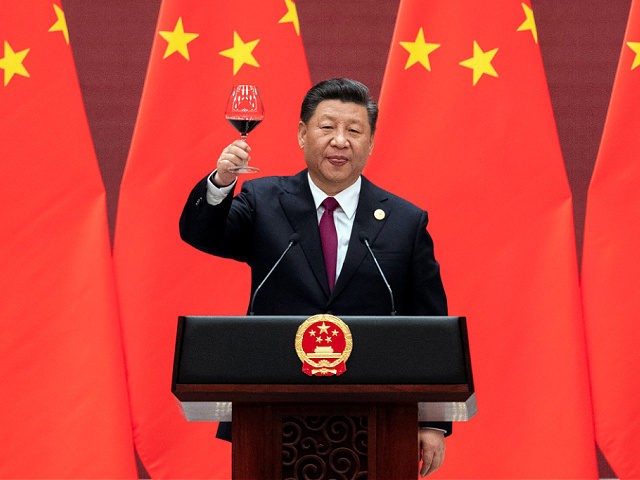The Chinese Communist Party’s (CCP) effort to rebut allegations of abuse and genocide against the Uyghur Muslims of Xinjiang province included wining and dining a delegation of “more than 30 diplomats from some 21 countries” who visited the province from March 20 to April 2.
The bon vivants included representatives from such noted experts on freedom and human rights as Iran.
According to a report in China’s state-run Global Times on Sunday, the VIPs gushed over the marvelous naan created by the happy residents of Xinjiang, a homegrown agricultural and baking industry that supposedly demonstrates the “social and economic development in Xinjiang in recent years.”
The Global Times claimed the visitors “talked with locals from various sectors of society, visited local schools and enterprises, and debunked rumors about Xinjiang, a region whose image is frequently distorted by some Western politicians, organizations, and media.”
Iran’s ambassador to China, Mohammad Keshavarz-Zadeh, was especially taken with the quality of the mosques in Xinjiang:
Responding to rumors fabricated by some Western media that Xinjiang “restricts freedom of religious belief,” the ambassador said that, during a visit to the Baida Mosque located in Urumqi, normal Islamic religious activities in mosques took place in line with the Muslim people’s will.
“As a Muslim, I prayed in the mosque. I saw people are free to practice their religious activities.” He said that the mosques are spacious and bright, the carpets are soft and clean, and there are tables and chairs for the convenience of the elderly and the disabled.
The mosques also have facilities like flush toilets, ablution rooms, canteens, and cultural centers, Mohammad Keshavarz-Zadeh said.
The VIP delegation contributed to China’s propaganda narrative that all of its oppressive actions in Xinjiang are justified by the continuing threat of Uyghur terrorism. Chinese officials managed the neat trick of claiming that the shortage of actual terrorism in Xinjiang is proof that the oppression of Xinjiang is necessary.
“I appreciate that the Chinese government and people not only substantially control terrorism but they have given new ways of life, including vocational training and education. It means people in Xinjiang are not suppressed, and they have been given opportunities to move forward toward peace and development,” said Nepalese ambassador Mahendra Bahadur Pandey, echoing another key Chinese propaganda point, the claim that Xinjiang’s immense concentration camps are actually “vocational training centers” with super-aggressive recruitment programs.
The CCP has thus far been able to secure enough support from Muslim nations like Iran to blunt efforts at rallying Muslims around the plight of the Uyghurs, and enough support from China’s client states and business partners to thwart international human rights campaigns. United Nations attempts to send fact-finding missions to Xinjiang have been rebuffed while the CCP treats selected guests to luxury tours.

COMMENTS
Please let us know if you're having issues with commenting.